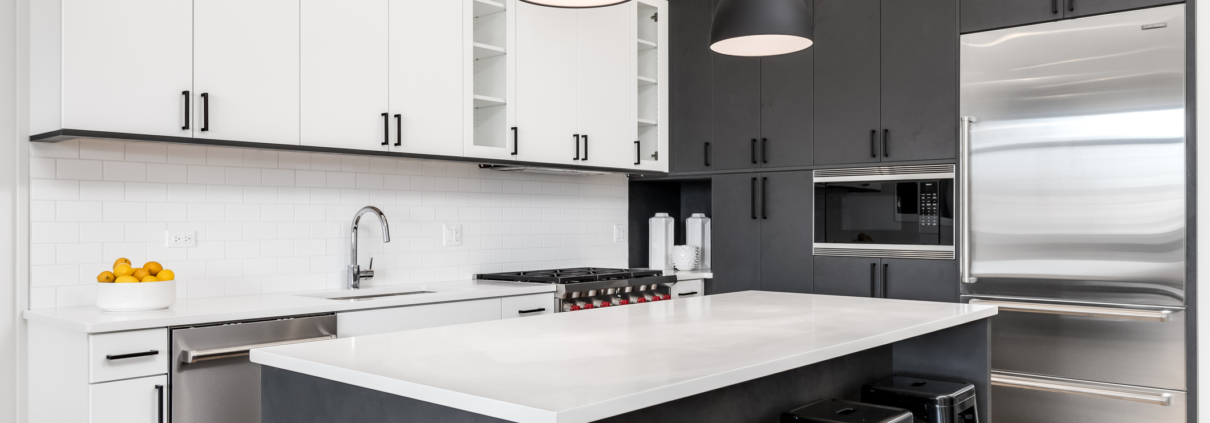Synthetic Stone
For thousands of years, people all over the world saw the beauty and use of stone as a material for homes, gardens, and buildings of all types. As time passed engineers began to study more closely the composition of stone—what made it so durable, how the textures and colours formed, how it could be manipulated, and more. Eventually scientists were able to start creating stone artificially using that information, and this innovation has developed into an invaluable field!
How They Are Made
Creating synthetic stone starts with gathering particles of natural stone, most commonly granite, quartz or marble but sometimes with pieces like agate or chalcedony. These raw pieces of stone are measured, combined, and then put through a process of intense heating and pressurisation. Colour can be altered through both the “ingredients” of raw stone added, as well as the temperatures and movement of the rock during the solidifying stage. Natural rock is made in the same way, through heat and pressure, but that process takes thousands—even millions—of years. With synthetic stone that process is expedited exponentially, creating stone that is just as durable in a fraction of the time. After the rock is formed, stone cutters are able to cut it into slabs or chunks that can be used for whatever you need.
Popular Types
Many types of synthetic stones have been created, each with various benefits and styles that are attractive to buyers. Quartz, dekton, and porcelain are just a few examples of some of the most popular artificial stones for both functional and aesthetic purposes. The durability and colour options for these materials make them perfect for any kitchen, bathroom, business, backsplash or façade just to name a few uses!
What Makes Them Impressive?
For the same reasons people thousands of years ago loved stone, people today constantly find the benefits of stone materials far worth the cost. Synthetic stone is no less impressive than natural—in fact, there are specific qualities of these artificially made stones that make them even more appealing than average natural rock! For example, Dekton is UV resistant, making it the perfect addition for outdoor floors, counters, tables and more. Porcelain is entirely non-porous, and therefore a great fit for kitchens or bathrooms that need to remain easily sanitised. Best of all, these materials are often cheaper and lighter than their all-natural counterparts, while keeping the same physical beauty and longevity.
Sold on synthetic stone? Look at your endless options for these and other stone materials at Koliqi and enjoy all the benefits available!




Leave a Reply
Want to join the discussion?Feel free to contribute!